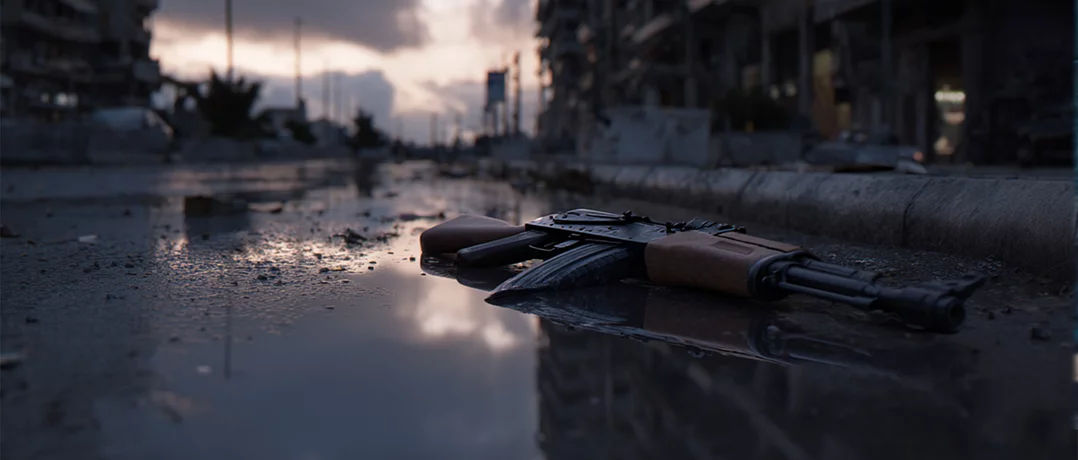Lebanon risks deeper instability as state inaction empowers an armed group vulnerable to both state authority and internal Shiite divisions.
The test of legitimacy and Hezbollah’s fragile power
The test of legitimacy and Hezbollah’s fragile power


Lebanon has entered a delicate and highly sensitive phase following the recent agreement to end the war in Gaza. This development has reignited fears of a potential Israeli military escalation against Hezbollah, especially as domestic political efforts to address the issue of illegal arms continue to falter.
The government’s hesitation to take serious steps on the weapons question, coupled with the fading momentum that accompanied the early months of the presidential term, when Hezbollah was still reeling from the war’s repercussions, has allowed the group to regain its political footing. From a position of confusion and defensiveness, Hezbollah has shifted back to the offensive, taking advantage of a complacent political establishment unwilling to confront it.
Yet, behind Hezbollah’s show of confidence lie two major sources of vulnerability that the group seeks to avoid at all costs.
1. The question of legitimacy
Clashing with the Lebanese state and its institutions remains one of Hezbollah’s greatest weaknesses. Ironically, the real problem lies not in Hezbollah’s defiance, but in the state’s chronic submission, its tendency toward hesitation, appeasement, and paralysis. Despite this, confrontation with legitimate state authority continues to be the party’s most sensitive pressure point, as evidenced by several key moments in recent Lebanese history:
• In nearly every government, Hezbollah has insisted on including the term “resistance” in cabinet policy statements and on electing a president who would “protect the resistance.” These efforts are designed to secure a veneer of legitimacy for its arms.
• The May 7, 2008 events, when Hezbollah briefly took over parts of Beirut, would not have occurred without the group’s prior assurance that the military and security apparatus would remain neutral and refrain from confronting it.
• Contrary to Hezbollah’s official narrative, the “Tayouneh” clashes were not a confrontation between the party and the Lebanese Forces, but between Hezbollah and the Lebanese Army. Yet Hassan Nasrallah chose to publicly blame the Lebanese Forces, knowing the party cannot afford a direct military confrontation with state legitimacy.
• When the government once decided to prevent Hezbollah from blocking the airport road in protest over a ban on Iranian flights, the order was enforced by the army. Hezbollah was forced to back down, and never repeated such an act. That episode revealed a crucial truth: when faced with a firm and unified state decision, Hezbollah retreats.
2. The Shiite-Shiite red line
A second major vulnerability for Hezbollah is the prospect of intra-Shiite conflict. Since the group subdued the Amal Movement during the civil war, it has monopolized decision-making within the Shiite community, yet without fully eliminating Amal’s political role.
Despite its overwhelming military and popular dominance, Hezbollah has maintained a strategic alliance with Amal, not out of loyalty or partnership, but to avoid any internal schism within the Shiite community, a division the group knows could be politically fatal.
A narrowing path forward
Lebanon now stands on the brink of a dangerous phase, one that could easily spiral out of control if the political class continues to evade decisions on core sovereignty issues. The state’s inability, or unwillingness, to assert its authority risks leaving the country hostage to a single armed actor whose agenda transcends its borders.
It is time for Lebanon’s leadership to act decisively. Presidents Joseph Aoun and Nawaf Salam must use the full weight of state legitimacy to confront Hezbollah’s overreach. And Speaker Nabih Berri, wearing his hat as head of the Amal Movement, not merely as the Speaker of Parliament, must intervene to stop Hezbollah from dragging the Shiite community into political and moral self-destruction.
Lebanon’s survival as a sovereign state depends on reclaiming the authority of legitimacy before it is too late.

